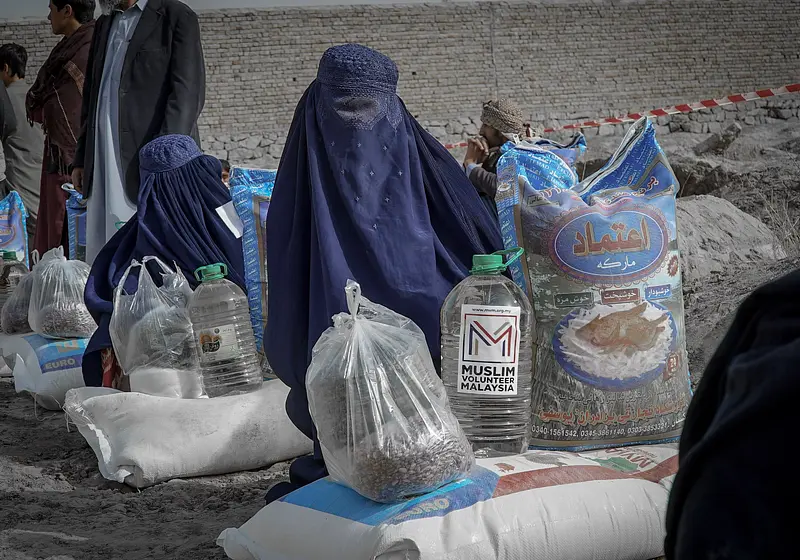After the government collapsed, the Taliban again swept into Afghanistan. Furthermore, the president followed the journey of his fellow citizens and foreigners, indicating the conclusion of a high-priced 20-year U.S. campaign to transform the country.
All that is happening now with Afghanistan and the Taliban is a repercussion based on the fact that history, once again, repeated itself. Hence, it's crucial for us teenagers to stay informed about these circumstances because, if we don't, we'll never advance as a society.
Let us slide into your dms 🥰
Get notified of top trending articles like this one every week! (we won't spam you)Take the Quiz: Which Indian city is the perfect holiday spot for you!?
Let's match you with an Indian city that you would love!
So, who are the Taliban?
The Taliban, meaning students in the Pashto language, emerged in the 1990s in northern Pakistan following the departure of Soviet troops from Afghanistan. It is assumed that the predominantly Pashtun movement first appeared in religious institutes - essentially paid for by money from Saudi Arabia (which preached a hardline form of Sunni Islam.) The Taliban’s “objective” was to rebuild unity and security while executing their subjective version of Sharia, or Islamic law, once in control.
From south-western Afghanistan, the Taliban immediately spread their power. In September 1995, they seized the region of Herat, which borders Iran. One year later, they captured the Afghan capital, Kabul, defeating the regime of President Burhanuddin Rabbani, one of the founding fathers of the Afghan mujahideen that opposed the Soviet occupation. The Taliban were in charge of practically 90% of Afghanistan in the late 1990s.
Afghans, exhausted from the mujahideen's excesses and infighting after the Soviets were forced out, regularly welcomed the Taliban when they first surfaced on the scene. Their early popularity was primarily due to their authority in branding out corruption and restraining lawlessness.
But the Taliban also introduced punishments in line with their strict understanding of Sharia law, such as public performances of convicted murderers and adulterers and amputations for those perceived guilty of theft. In addition, men were compelled to grow beards, and women had to wear an all-covering burka.
The Taliban also banned television, music, and cinema and opposed girls aged ten and over receiving an education. In October 2012, famous schoolgirl Malala Yousafzai was shot on her way home in the town of Mingora (I Am Malala: The Story of the Girl Who Stood Up for Education and was Shot by the Taliban). The Taliban were excluded from power in Afghanistan by US-led forces in 2001, but the organization has been on the attack in recent months and is now on the verge of grabbing power again.
What’s happening now?
Heavily armed Taliban warriors spread out across the capital, and some entered Kabul’s abandoned presidential palace. A Taliban official said the group would state from the palace the return of the Islamic Emirate of Afghanistan. Consequently, Kabul was seized by fear.
Helicopters flew over throughout the day to remove personnel from the U.S. Embassy. The staff destroyed vital documents, and the American flag was lowered.
Afghans hurried to leave the country as they worried that the Taliban could reimpose the rules that diminished women’s rights. The seriously impoverished remained in open spaces throughout the city, seeing they had no other place for refuge.
Though the Taliban had declared a peaceful transition, the U.S. Embassy ceased operations. It urged Americans to shelter in place and avoid the airport, as commercial flights were halted after infrequent gunfire erupted at the Kabul airport.
Moreover, when confronted, the U.S. Secretary of State Antony Blinken denied comparisons to the U.S. pullout from Vietnam. “This is manifestly not Saigon.” Meanwhile, President Ashraf Ghani flew out of Afghanistan, leaving his citizens in these complex circumstances.
Taliban fighters continued deploying across Kabul, taking over abandoned police posts. As a result, citizens began reporting looting in parts of the city, although the Taliban vowed to maintain law and order during the passage. They also insisted that their fighters would not enter people’s homes, and they would offer immunity to those who served the Afghan government/foreign forces. However, there have been various reports of retaliation killings in areas of the country the Taliban have seized in recent days.
In a challenging route, the Taliban seized almost all of Afghanistan in just a little over a week, despite the billions of dollars spent by the U.S. and NATO over nearly two decades to build up Afghan defence forces.
After the rebels entered Kabul, Taliban negotiators discussed a transfer of power. However, it remained unknown when exactly that transfer would transpire and who was negotiating among the Taliban. The moderators on the government side included former President Hamid Karzai, head of Hizb-e-Islami political and paramilitary organization Gulbuddin Hekmatyar, and Abdullah, a vocal commentator of Ghani.
Hamid Karzai appeared in a video posted on social media, with his three daughters around him, saying he had settled in Kabul. He said they were trying to solve the issue of Afghanistan with the Taliban leadership peacefully.
Meanwhile, Afghanistan’s defence minister, Bismillah Khan Mohammadi, did not hold back when reprimanding the fleeing president. “They tied our hands from behind and sold the country. Curse Ghani and his gang,” he tweeted.
Following the harsh tactics of the Taliban, there were several incidents. One was a female journalist, sobbing and sending voice messages to colleagues after armed men invaded her apartment and pounded on her door. “What should I do?
Should I call the police or the Taliban?” Getee Azami shouted. It remains unknown what happened to her after that.
An Afghan university student reported feeling betrayed as she saw the evacuation of the U.S. Embassy. “You failed the younger generation of Afghanistan,” said Aisha Khurram, 22, who is now uncertain of whether she will be able to graduate in two months. She stated her generation was “hoping to build the country with their own hand. But, instead, they put blood, effort, and sweat into whatever we have right now.”
For more information, feel free to visit these two articles that I feel expand on this topic the most, including the background information.
Finally, if you're thinking about ways to help, there are some and it is possible. You can donate now to help the International Rescue Committee (IRC) support Afghans in a crisis. Moreover, you can keep searching for articles like these to stay informed. Because remember, if you have nothing but education on your side in a war, then you have everything.
References:







